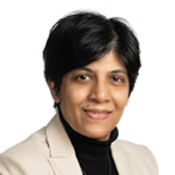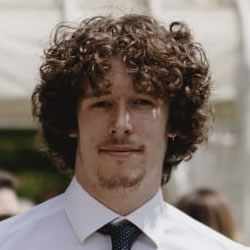IHTC Program
Workshops
The IEEE IHTC 2021 Program features two workshops on Saturday 04 December.
Workshop 1: Ethical Considerations in Technology Implementation and Artificial Intelligence Workshop
Workshop Chair: Keeley Crockett, Manchester Metropolitan University, UK
The aim of this workshop is to raise awareness of the ethical, social, moral and environmental responsibilities of implementing digital technologies that include Artificial Intelligence products and services.
Welcome and overview – Ethical considerations for developing responsible and trustworthy technologies
Keeley Crockett, Manchester Metropolitan University, UK
Ethical Considerations in Technology Implementation and AI Panel
Panel Chair: Prof. Paul M. Cunningham, IST-Africa Institute, Ireland
- Nell Watson, Chair of the IEEE’s ECPAIS Transparency Experts Focus Group, and Vice-Chair P7001 Transparency of Autonomous Systems committee on A.I. Ethics & Safety, UK
- Prof. Nelishia Pillay, University of Pretoria, South Africa
- Prof. Dora Kaufman, University of São Paulo (USP, Brazil)
- Dr. Sean Brophy, Manchester Metropolitan Business School, GM AI Foundry, UK
Overview of the IEEE 7000 standard
Prof. Ali Hessami
Panellists

Her work primarily focuses on protecting human rights and putting ethics, safety, and the values of the human spirit into technologies such as Artificial Intelligence.
Nell serves as Chair & Vice-Chair respectively of the IEEE’s ECPAIS Transparency Experts Focus Group, and P7001 Transparency of Autonomous Systems committee on A.I. Ethics & Safety, engineering credit score-like mechanisms into A.I. to help safeguard algorithmic trust. She also chairs EthicsNet.org, a community teaching prosocial behaviors to machines, CulturalPeace.org, crafting Geneva Conventions-style rules for cultural conflict, Endohazard.org, a hazard symbol project for informing consumers of endocrine disruptors, and Pacha.org, connecting a network of service providers to help enable the automated accounting of externalities (shifted costs) such as pollution.
Nell serves as an Executive Consultant on philosophical matters for Apple, as well as serving as Senior Scientific Advisor to The Future Society, and Senior Fellow to The Atlantic Council. She also holds Fellowships with the British Computing Society and Royal Statistical Society, among others.
Her public speaking has inspired audiences to work towards a brighter future at venues such as The World Bank, The United Nations General Assembly, and The Royal Society.

Nelishia Pillay holds the Multichoice Joint-Chair in Machine Learning and SARChI Chair in Artificial Intelligence. She is chair of the IEEE Technical Committee on Intelligent Systems Applications, IEEE Task Force on Hyper-Heuristics and the IEEE Task Force on Automated Algorithm Design, Configuration and Selection.
Her research areas include hyper-heuristics, automated design of machine learning and search techniques, combinatorial optimization, genetic programming, genetic algorithms and deep learning for and more generally machine learning and optimization for sustainable development. These are the focus areas of the NICOG (Nature-Inspired Computing Optimization) research group which she has established.
She has published in these areas in journals, national and international conference proceedings.
She has served on program committees for numerous national and international conferences and is a reviewer for various international journals.

Dora Kaufman holds a PhD in communication science at Universidade de São Paulo/USP with Internship Program at Université Paris-Sorbonne IV.
She is a professor at the Pontifical Catholic University of São Paulo in ethical and social impacts of AI. She has a post-doctorate in Production Engineering Program from the COPPE-Universidade Federal do Rio de Janeiro (UFRJ) and post-doctorate at TIDD/PUC-SP.
She has more than 30 years of professional experience working in financial institutions and as managing partner of digital communication agencies. She has published three books among them “Will artificial intelligence supplant human intelligence?” (2019).

Dr Sean Brophy is an Enterprise Fellow and Lecturer at Manchester Metropolitan Business School where he manages the Greater Manchester AI Foundry, which is a £6m ERDF-funded project delivering AI business and R&D support to SMEs in Greater Manchester.
He is a multi-disciplinary researcher interested in economic development, human capital migration, skills, technology, and ethics.
He spent over 10 years at the Wharton School, University of Pennsylvania, developing executive education programmes for leading organisations like Google, Twitter, KPMG, Accenture, Toyota, and Citi, as well as public sector organisations like the US Army, the Ministry of Public Security of the People’s Republic of China, and the Crown Prince Court of Abu Dhabi. He has also conducted research at the University of Oxford’s Department of Education on commercial practices at UK and US business schools.
Sean has been elected a Fellow of the Royal Geographical Society and a Fellow of the Royal Society of Arts, Manufactures, and Commerce.
Workshop 2: Comprehensive Approach to Rural Electrification Processes
Workshop Chair: Dr. Riccardo Mereu, Politecnico di Milano, Italy
The Workshop aims at promoting the comprehensive electrification strategy, overcoming the traditional simplified techno-economic approaches that are being revolutionized more and more to include social and environmental evaluations to provide a long-term perspective. Among others, the experience of the H2020 project “Long-Term AU-EU Partnership in Renewable Energy (LEAP-RE)” is presented.
Riccardo Mereu is currently Senior Assistant Professor at Department of Energy of Politecnico di Milano (POLIMI) and lecturer of the course “Innovative Technologies for Energy” and “Sustainable Development” at Polimi.
His research mainly focuses on numerical modeling of energy industrial components and systems and application of sustainable energy technologies with particular attention to Developing Countries. Since 2010 he has been involved in different national and international projects for modelling and optimization of energy systems and components for international private companies. Among them, he is co-leader of WPs and tasks in LEAP-RE and PRE-LEAP H2020 projects about joint program EU-AU for energy access research and innovation programs
Keynote: Jon Exel, ESMAP – World Bank
Jon Exel is a Senior Energy Specialist at Global Facility for Mini Grids | Energy Access in ESMAP, World Bank. Jon leads the Global Facility on Mini Grids and manages the Energy Access for the Urban Poor initiative.
He previously worked with the World Bank from 1998 to 2004 on renewable energy operations in Asia and Africa. Jon has also worked with private investors, governments, nongovernmental organizations, and started the first registered mini-hydropower development company under the new energy policy and regulations in Croatia.
Jon has over two decades of experience in energy access and alternative energy sector, working with diesel, solar, hydropower, wind, and biomass-based energy systems, developing expertise in the delivery of energy services to large groups of end users; business plans and delivery models; pre-investment and investment plans; market intelligence; and how institutions plan and operate.
Jon has lived and worked in Liberia, Indonesia, Bosnia and Herzegovina, East Jerusalem, and Cambodia. Jon holds a MA in Energy Engineering and Business Administration.
Panellists

Darlain Edeme holds a M.Sc. in Energy Engineering for Development at Polytechnic University of Milan and a postgraduate M.Sc. in ICT for Development at University of Turin.
He is currently a research fellow and Ph.D. student at Polytechnic University of Milan in the Electric Power Systems group within the Energy Department. His research focusses on GIS application for vast scale energy planning and rural electrification in Developing Countries.
Before entering the research field, he worked for more than two years as a consultant and program manager for an international NGO within the Mozambican Government’s “Energy for All by 2030” Program.
In particular, he had the responsibility on the implementation of projects for the Italian Agency for Development Cooperation in the frame of the “Ilumina: energy access for local development and women empowerment” Program.

Davide has achieved the PhD in Power Systems from the University of Pisa, where he currently holds a post-doctoral position in the same topics.
Davide has extensively worked in the power system modelling and the optimal multi-year and single-year planning and operation of microgrids for developing countries, also including stochastic uncertainties and multiple objectives.
He has been visiting scholar at Massachusetts Institute of Technology.

Giacomo Falchetta is a post-doc researcher at the Energy, Climate, and Environment program at IIASA (the International Institute for Applied Systems Analysis) and at the Free University of Bozen.
Giacomo is working on integrated energy-economy-environment analysis. He is involved in the H2020 LEAP-RE – RE4AFAGRI (Renewables for African Agriculture) project, while at UNIBZ I work on the HIPSTER project (HIgh-Performance statistical methods for Spatio-Temporal Environmental and econometRic data). He is also an Advisory Council Member at EarthArXiv.
His work consists of data-driven research, mostly through techno-economic and integrated environmental modelling and the therefrom derived policy discussion.
He believes in the power of data (in particular, GIS analysis and earth observation) for empowering both research and policy.

Contribution: Comprehensive energy solution planning for rural electrification
Nicolò Stevanato is a Doctoral Researcher at Politecnico di Milan. His field of research field locates in the framework of energy system modelling for policy support and long-term energy planning in developing countries, with particular focus on the issue of access to electricity in rural areas. In particular the research investigates the nexus between fundamental human needs and electricity demand, defined as Demand-Need Nexus.
Bottom-up energy modelling is used to investigate the impact of linking the electricity demand projections of unelectrified areas to the expected needs of the rural communities in the sizing of specific off-grid energy systems, all the way up to the investigation of long-term planning of national electrification strategies, studying the likely evolution of the latent electricity demand of developing countries. These analyses are then used to support scientifically informed national energy policies and energy planning strategies.
Contribution: Lateral electrification : Towards a viable technological, sociological and economical path to build smart power infrastructure in Africa from the bottom-up.
Wrap up and Close
